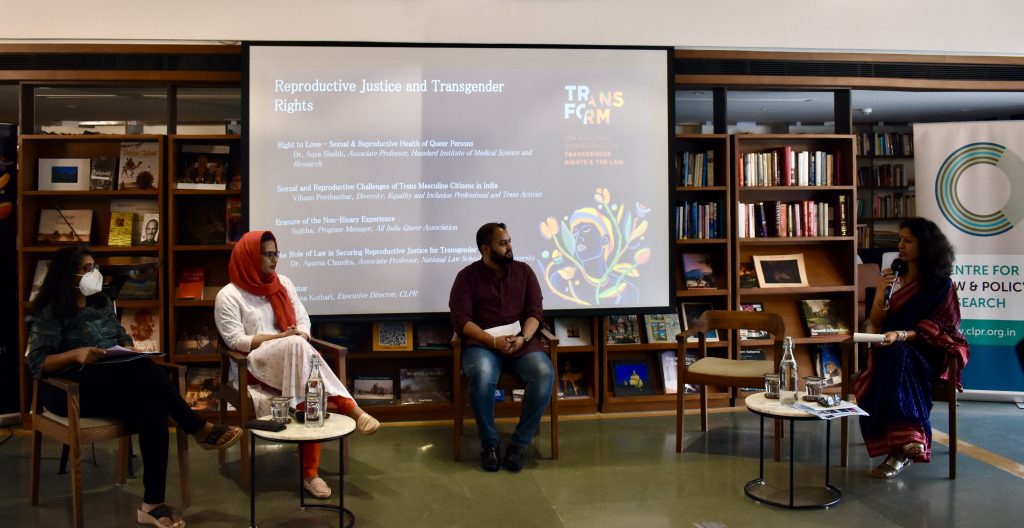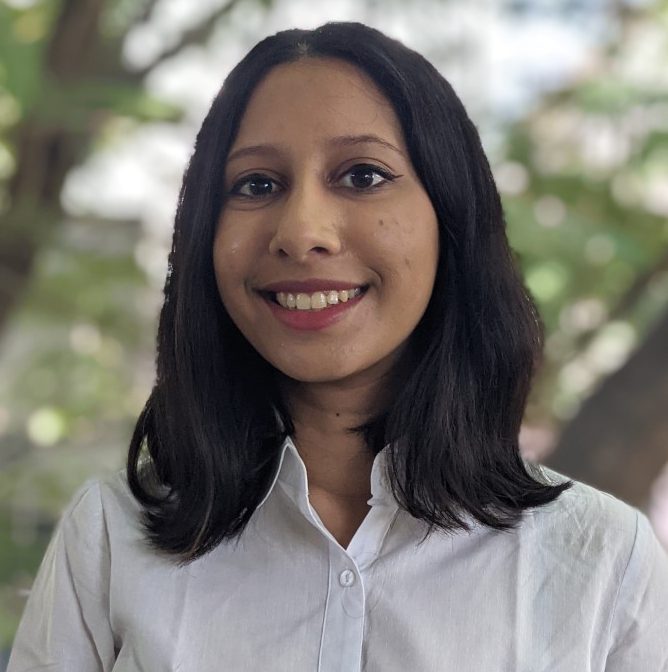
This is a summary of the panel on Reproductive Justice and Transgender Rights. To watch the entire video, click here.
Dr. Aqsa Shaikh, a transgender woman and doctor, spoke on the “Sexual and Reproductive Health of Queer Persons”. She began by stating that both medical professionals and the law reduce transgender persons to their body parts and stigmatise them. Medical professionals completely ignore reproduction in discussions around transgender persons’ bodies, believing them to be asexual or hypersexual perverts incapable of having children. The Transgender Persons Act, 2019 also requires surgical intervention for issuance of the correct certificate, though a hysterectomy or mastectomy would not void a cis-person’s gender. She touched on intersex persons, and how doctors aim to “normalise” them at birth, based on the “normal” length of the penis or clitoris. She noted how such unnecessary surgeries can traumatise intersex children.
Regarding reproductive freedom, she highlighted existing discrepancies. She mentioned how abortion laws only use the word “woman”, thereby denying transgender persons access to abortion services. Those from the medical profession do not recognise that trans-men have breasts and therefore do not screen them for breast cancer. She mentioned that trans-men giving birth is largely unheard of in the Indian context.
Vihaan Peethambar, a trans man and activist, spoke on the “Sexual and Reproductive Challenges of Trans Masculine Citizens” in India. Vihaan began by showing that transgender persons have different healthcare needs. Even though the right to gender identity and the right to sexual and reproductive healthcare are basic human rights, trans-masculine persons are forced to choose between one or the other. Many trans-men delay transitioning just so that they can have children. He described his personal experiences at hospitals and the dehumanising treatment he received. He realised that his goals would not be supported and ultimately gave up his dreams of being a parent. He noted that though trans-men do give birth in India, they are usually trans-men who are married to cis-men. He addressed how trans men may have children even without consent. When trans-men decide to come out and live their life authentically, they are usually forced to give up custody of their children even if they had been the primary caregivers for the children until then. Courts in these cases exhibit an inherent bias against transgender persons in favour of the cis-gender partners.
Dr. Aparna Chandra, a professor at NLS, began by addressing the role of law in both securing and inhibiting the rights of transgender persons. She explained how the term “reproductive justice” was centred around freedom from state interference and reliant on the right to privacy. However, less privileged women needed the state in order to access these rights. The difference between the two contexts is that in the latter case, having the right to abortion or any similar right would also imply the right to access such a service locally and affordably.
She discussed how menstruation in the legal context is only mapped out for cis women and how this characterisation effectively denies this right to transgender men who also menstruate. She also touched on the need for awareness about safe sexual practices, and how existing information is generally in a heteronormative context and does not address the trans community. Since POCSO does not recognise sexual activity below the age of 16 years, trans-adolescents who may need abortion services or reproductive healthcare will necessarily have to approach the police. Needing to go to the police is in itself a limitation of access. Even trans-affirming doctors will hesitate to provide care since there is a risk of criminal penalties which may be imposed on them. She also touched on the restrictiveness of the ART Act and adoption laws and how they do not consider transgender persons within their scope.
Through these talks, it is evident that the conversation around reproductive justice for transgender persons still has a long way to go before they can receive the reproductive care due to them and assert their rights.

